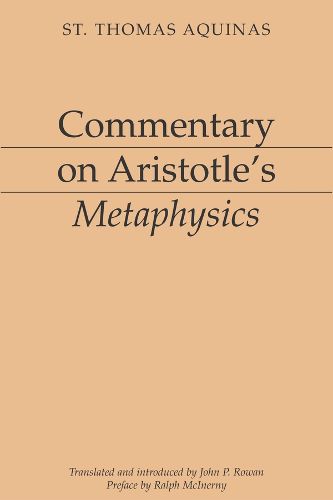Of all Thomas Aquinas’s Commentaries on Aristotle, that on the ‘Metaphysics’ is a compilation of disparate marerials, probably made by someone after Aristotle, and that the order of the books cannot be taken to represent any literary unity. Indeed, the internal contents of the books were said to represent materials of different date and purpose. Furthermore, the presumed aim of these treatises, and indeed of philosophy generally, the aquisition of wisdom, receives in the ‘Metaphysics’ two radically different accounts. Is God the object of Wisdom or is wisdom the most comprehensive view of the natural world? Is the science Aristotle is seking in the treatises an ontology or a theology? In marked contrast to such imaginitive accounts, the net effect of which is to discourage rather than to encourage reading of the work, Thomas Aquinas finds the twelve books he comments on wonderful for their order, both overall and in the minutest detail. His reading is governed by what he takes to be the clear sense of the text, his interpretations keep close to what Aristotle actually said, his account is breath-taking in ts acuity. Thomas’s commentary belongs to the great tradition that was broken - one hopes temporarily - by the rise of philology, which a cynic has described as the effort to read text without understanding it. Any student of Aristotle can appraise Thomas’s interpretation since its measure is the text of Aristotle. This edition reproduces the translation of John Rowan as well as his introduction, but in a single volume, rather than in two.





